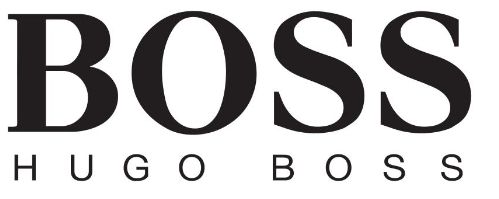In this article, we discuss two recent, unsuccessful trade mark oppositions in New Zealand and Japan. Both cases dealt with whether the trade marks SPOTIFY vs SPORTIFY and HUGO BOSS vs HUGOO, used by different parties, would lead to consumer confusion or deception.
New Zealand - Spotify vs Sportify

This is the second time in two months that we've discussed a trade mark judgment from the Intellectual Property Office in New Zealand. This is great, because like their rugby team, they are quite formidable.
Spotify
Spotify is of course well-known, it's the music / audio streaming service that you don't have to pay for if you're prepared to put up with multiple ads.
Sportify
This will be a new name to many, it's a brand name that's used in respect of the retail of sporting goods.
The bloke behind SPORTIFY, Kashif Shuja, filed an application in New Zealand to register the trade mark SPORTIFY in respect of 'retail services provided by sporting goods stores'. Spotify opposed the application based on its SPOTIFY trade mark.
The hearing officer's judgment
The hearing took place on 9 April 2024 and the judgment was handed down by the hearing officer, Ruvini Rendle, Assistant Commissioner of Trade Marks, on 11 June 2024. The hearing officer dealt with a number of issues, handing a big win to SPORTIFY and ultimately concluding that the SPORTIFY trade mark was not confusingly similar to the SPOTIFY trade mark:
Awareness / A well-known mark
The hearing officer accepted that Spotify is well known in New Zealand in the field of streaming services: 'I consider the Opponent has used its mark in relation to media streaming goods and services (encompassing classes 9, 38 and 41), and that there is an awareness of its mark in relation to these services.' But that reputation or brand awareness does not extend to the field of sporting retail services.
Visual and phonetic similarities
The hearing officer said that, although the marks have visual and phonetic similarities, these are at 'the lower end of the scale'. What was important was that the first parts of the marks differ, as does the overall impression of the two marks. The hearing officer went on to say that the services are very different, as are the purposes and trade channels.
Conceptual similarities
The hearing officer said 'I consider that those encountering the mark (SPORTIFY) are likely to understand it to be referring to the idea of ''making something into a sport''.'
Similarity of goods/services
The hearing officer said 'the use or purpose of the Opponent's services is to access music or podcasts, whereas the purposes of the Applicant's services is to purchase sporting goods.'
Average consumer
The hearing officer was of the view that the average consumer, who is reasonably well-informed and circumspect, would be unlikely to confuse the marks, and the opposition by Spotify was unsuccessful.
Costs
There was no cost award. The hearing officer pointed out that 'the Commissioner has adopted the long-standing practice of the New Zealand courts not to award costs to a lay litigant, even when they are successful.'
Japan – Hugo Boss vs. HUGOO

Hugoo
A company called GRIT Incorporated filed a trade mark application in Japan for the trade mark Hugoo (stylised) in class 18 for bags of various descriptions. Hugo Boss was having none of it and filed an opposition based on confusing similarity with earlier trade mark registrations for HUGO covering the same goods. Hugo Boss argued that the 2nd letter 'o' in Hugoo (stylised) was inconsequential, making both the marks and the goods similar.
The Japan Patent Office ("JPO") decides
The JPO, however, held that the marks are 'clearly distinguishable', saying 'there is a difference in the ending 'oo' or 'O'. It went on to say that 'the difference has no small effect on the visual impression of the appearance of both marks, which are composed of five and four relatively short characters... from pronunciation, it is reasonable to conclude that both sounds are clearly audible and distinguishable .. both marks are distinguishable in appearance and sound, and incomparable in concept.'
So Hugo Boss' opposition failed, some blaming the JPO for its failure!
In my view, the cases in New Zealand and Japan both dealt with the comparison of similar trade marks both of which were unsuccessful. Although these cases did not deal with the submission of independent evidence to establish whether consumers were still likely to be confused, it would be interesting to see if such evidence were presented, whether the outcomes would have been different.
Reviewed by Gaelyn Scott, Head of ENS' IP Practice.
The content of this article is intended to provide a general guide to the subject matter. Specialist advice should be sought about your specific circumstances.


